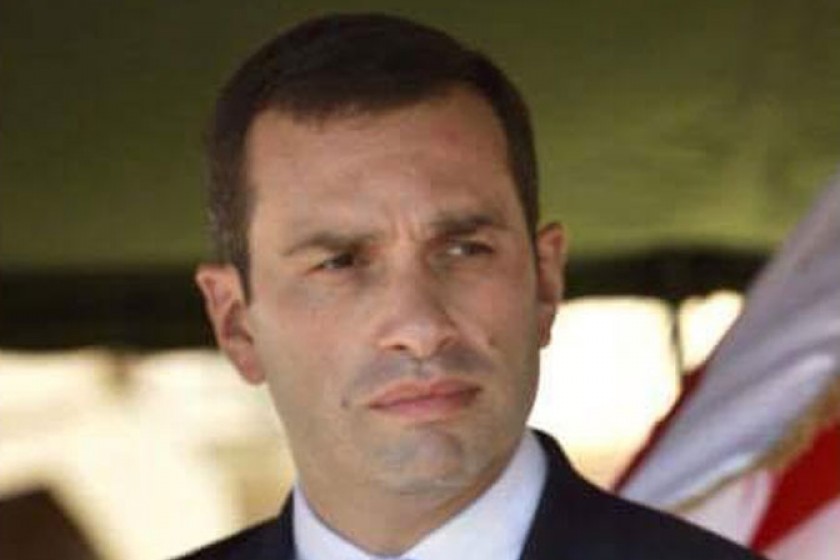
Georgia May Help to Create Channels of Communication Between Armenians and Azerbaijanis
An interview with Irakli Alasania, a Georgian politician, ex-Minister of Defense of Georgia, in Office in 2012-2014.
In context of learning lessons and bringing solutions to conflicts, your story seems very touching, could you tell more on the transformation that happened to you?
After the conflict in Abkhazia in 1993, there were the consequences of ethnic cleansing. I lost my father, who was captured and executed by the separatists and Russians.
I was also a volunteer, so I was thinking about the only way to resurrect justice and to respond to those who attacked Georgia. The only way was to get Georgia stronger militarily and to counterattack and take back Abkhazia. With this in mind, I enlisted in the military. Then, strangely enough, after 10 years of this conflict, I was asked to lead negotiations with the Abkhaz. I initially refused, because I thought I was not the right person.
To make a long story short, I started to talk with them, negotiating with them. And I felt it was a transformation for us to see that this people have the same security concerns and the same lose as we did. Their sisters, brothers, fathers and sons died in the confrontation. I realized that a military solution would make matters worse. So, I started a dialog with the Abkhaz side and I thought: “Ok, we are not going to agree on how this conflict started, but we will agree to start thinking about how we should avoid this, so that our kids will not suffer the same”.
Therefore, we started putting together again an economical working group. The Abkhaz started visiting Tbilisi, de-facto authorities came to visit us, and I twice went to Sukhumi for the first time after the war.
So, there was a certain enthusiasm and a hope on both sides to achieve, at least, first steps to a fragile peace that then would allow us to interact. I think the only way to deal with this confrontation is to open-uptrade and commerce so that people will interact more and will get to know each other anew. We lost each other in this war, and we had to introduce ourselves again. And, of course, I hope that the new generation will be better equipped not prejudge the other side before the meeting. I think we must help facilitate trade and other relationships with the Abkhaz and the Tsinvali region to get people closer to each other.
Why is not there the same understanding today for a solution to the Nagorno Karabakh conflict and an attempt to apply the Georgian experience to solve it peacefully?
We did not solve the problem. This is an opening another direction. It would be smart on their side, rather than only relying on a military solution. We can think about how we want to live together in Caucasus. There should be people to people channels of communication that governments will help, not hinder. That would be smart from their perspective. On the other hand, Georgia also may be here proactively helpful by creating the venues. We have a strategic partnership with Azerbaijan. We have trusted relations; the same way that we have very close historical relationship with Armenia. So, there is trust on both sides, and we can navigate this in a way that will not threaten the other side. Georgia should proactively seek to be part of that.
There is a big mistrust between the Armenian and Azerbaijani sides. This mistrust can only be overcome, I think, by giving each other the benefit of doubt and trying to come to some kind of understanding on a humanitarian basis. What hinders is the political will. We have a lack of this political will by the sides to the conflict.
How about the lack of democracy in the countries which results in the lack of freedom of speech, and suppression of civil activities preventing the emergence of potential needed for conflict resolution?
Political will is the most important. Democracy is something that will take time. And I don’t think that the sides have the time to wait until the countries will be fully functioning democratically functioning. I think they are losing time. They have to allow, and as I mentioned the example of Georgia, more interaction between the sides and that will be very smart for them to do.
The situation is aggravated by the lack of any other processes but a political one.
I think there should be a new kind of policy that Georgia can incorporate in bilateral dialog with Azerbaijan and in bilateral dialog with Armenia. A new item.
Which is…
It can be a straight forward civil society platform that should be created and funded by the independently managed civil society.
The governments could be helpful in creating and providing funds for the Azerbaijani, Armenian and Georgian civil groups to get together, so that a new generation representatives can discuss how they see the current situation. They would start jointly thinking about the possibilities. I think we first should move towards what is possible, and then towards what is desirable.
Do you know any focal groups in Armenia and Azerbaijan who might potentially contribute to the initiative?
I am not that familiar with the civil society movements in both countries, but I am quite sure there are. I think it will be more effective for Georgia to initiate this, rather than Armenia and Azerbaijan, because the two greatly mistrust each other.
Interview conducted by Oksana Musaelyan
 Videos
Videos Photos
Photos




Write a comment